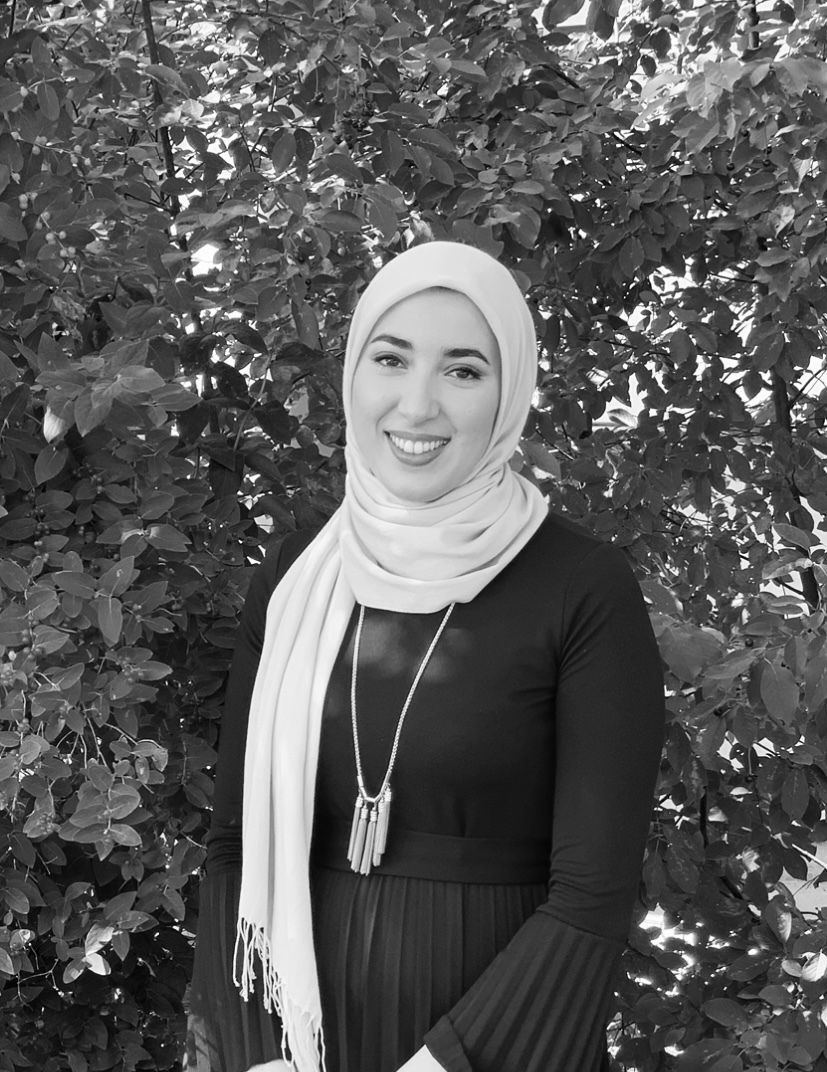The Fatima Al-Fihri Award in Islamic Studies
Warm Congratulations to the Recipient of the Fatima Al-Fihri Award in Islamic Studies in 2024

Amani Khelifa
Ph.D. student, Department of History, Classics and Religion
Thesis Topic: Her doctoral research examines the work of Ahmad Al-Ṣaghīr, the Mauritanian jurist. By retrieving the voices Al-Ṣaghīr’s, the project demonstrates that philosophers and epistemologies of the past (postclassical, precolonial) should re-enter modern debates about the Islamic law and beyond.
Warm Congratulations to the Recipient of the Fatima Al-Fihri Award in Islamic Studies in 2023
.jpg)
Rezvaneh Erfani
PhD Candidate, Sociology
Thesis topic: Her project, titled “Politics of Hope: Social and Political Capacities of Environmental and Climate Activism in the Middle East,” examines environmental politics in two Muslim-majority states, one in Africa (Egypt) and another in West Asia ( Turkey).
Warm Congratulations to the Recipient of the Fatima Al-Fihri Award in Islamic Studies in 2022

Rojina Sabetiashraf
MA Student, Art History
My research studies the role of Iranian women as visitors in museums. The museum visitor experience is physical, personal, social, and visual; studying this embodied experience is fundamental to understanding the cultural role of museums. Thus far, the field of critical museum studies has emphasized European and North American museums, by addressing how they produce national identity, educate citizens, and exclude certain groups, including different kinds of women, from them. My research will enrich the field by focusing on the diverse women who visit museums in Iran. Using methods of participant observation and archival research, I will explore the embodied experiences of women at two sites, namely the Tehran Museum of Contemporary Arts and the National Museum of Iran. Among other issues, I will consider how these museums may function as places for women to practice the “rituals of citizenship” described by museum scholar Carol Duncan. I will ask how different women move through, engage with, and understand the museum during their visits while attending to the museum’s ritual qualities.
Warm Congratulations to the Recipient of the Fatima Al-Fihri Award in Islamic Studies in 2021

Abubakar Abdulkadir
Ph.D. Student, History and Classics
Research project: The ‘Emergence’ of the Verse Tradition in Mauritania: Intellectual History and the Culture of Islamic Scholarship in the “Land of Million Poets.
My research—which focuses on Mauritania’s scholarly and literary traditions within Islam, Arabic poetry, intellectual religious thought, and examination of scholarly libraries and archives—brings to the fore Saharan perspectives on knowledge production and transmission.
Warm Congratulations to the Recipient of the Fatima Al-Fihri Award in Islamic Studies in 2020

Anas Fassih
Ph.D. Student, Political Science
Research project: As part of his doctoral dissertation about solar installations in the desert town of Quarzazate, Morocco, Anas Fassih critically examines what Islam and modern African-Muslim thinkers tell us about the challenge of climate change and human responsibility on earth. If the global discourse of the Anthropocene presents humans as masters of nature, what insights does Islam offer to humans to live in co-existence with nature?
Warm Congratulations to the Recipient of the Fatima Al-Fihri Award in Islamic Studies in 2019

Abdulkadir, Abubakar
Ph.D. Student, History and Classics
Title of Dissertation: Versification of the World: The Case for Mauritania, Land of Million Poets
The project is an historical investigation into the West African tradition of Arabic poetry with a specific focus on Mauritania, known as balad milyūn shāʿir (land of million poets). It examines the emergence of this uniquely robust and influential poetic tradition, which seems to have emerged in the 18th century and marked a paradigm shift in literary and intellectual production – from prose genres to the poetic ones that have characterized Islamic scholarship and the shaping of religious/socio-political attitudes in the region over the past three centuries. The study focuses on the influence and legacy of three 18th century Mauritanian scholars: Sīdī ‘Abd Allāh b. Muḥammad b. ʿAbd Allāh al- ʿAlawī (1644 – d. 1731), known as Ibn Rāzikah, Muḥammad b. Mukhtār b. Muḥammad al-Yadālī al-Daymānī (1680 – d. 1750) and Bū Famayn al-Majlisī (d. unknown) who are regarded as pioneers of this tradition.


